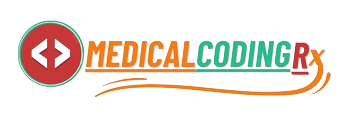
Technical Knowledge Questions
1. What is ICD-10?
The International Classification of Diseases, Tenth Revision (ICD-10) is a coding of diseases and signs, symptoms, abnormal findings, complaints, social circumstances and external causes of injury or diseases, as classified by the World Health Organization (WHO). Knowing and correctly applying ICD-10 is important for a medical coder so that they can communicate in common terms with other providers and payers.
2. Difference Between ICD-9 and ICD-10
ICD-9 and ICD-10 differ significantly in their structure and specificity. ICD-10 offers more detailed codes, which provide better data for tracking health trends and statistics. It uses a combination of letters and numbers, whereas ICD-9 uses only numbers, making ICD-10 more comprehensive.
3. Explain CPT Codes
Current Procedural Terminology (CPT) codes are used to describe medical, surgical, and diagnostic services. These codes are crucial for billing purposes, and a medical coder must accurately assign CPT codes to ensure that healthcare providers are reimbursed correctly.
Practical Skills Questions
1. How to Assign Codes for Different Diagnoses?
Assigning codes involves reviewing medical records, identifying relevant information, and selecting the appropriate codes. This requires a deep understanding of coding guidelines and the ability to apply them to various scenarios.
2. Examples of Coding Scenarios
You might be asked to walk through specific coding scenarios, such as coding for a routine check-up versus a complex surgical procedure. Demonstrating your ability to handle different types of coding tasks will showcase your practical skills.
3. Handling Complex Cases
Complex cases often involve multiple diagnoses and procedures. Your ability to accurately code these cases reflects your expertise and attention to detail. Be prepared to discuss how you’ve handled such situations in the past.
Regulatory and Compliance Questions
1. HIPAA Compliance in Medical Coding
HIPAA (Health Insurance Portability and Accountability Act) compliance is crucial in medical coding. You must ensure that patient information is kept confidential and secure. Understanding HIPAA regulations and how they apply to your work is essential.
2. Importance of Accuracy in Coding
Accurate coding is vital for proper billing and avoiding fraud. Inaccurate codes can lead to claim denials or legal issues. Emphasize your commitment to precision and how you verify the accuracy of your codes.
3. Dealing with Coding Errors
Everyone makes mistakes, but how you handle them matters. Discuss the steps you take to identify and correct coding errors, and how you learn from them to improve your future performance.
Behavioral Questions
1. Describe a Time When You Made a Mistake in Coding
This question assesses your honesty and accountability. Share a specific example, what you learned from the experience, and how you have implemented changes to avoid similar mistakes in the future.
2. How Do You Handle Stressful Situations?
Medical coding can be stressful, especially when dealing with tight deadlines or complex cases. Describe your stress management techniques, such as staying organized, taking breaks, or seeking support from colleagues.
3. Teamwork in a Medical Coding Environment
While much of the work may be independent, teamwork is still important. Discuss your experience working in teams, how you collaborate with others, and the role communication plays in your work.
Experience-Based Questions
1. Previous Medical Coding Experience
Interviewers will want to know about your past experience in medical coding. Be ready to discuss the types of coding you’ve done, the settings you’ve worked in, and any particular achievements or challenges you’ve faced.
2. Types of Software Used
Medical coders use various software programs to perform their duties. Mention the specific software you’re proficient with, such as Epic, Cerner, or 3M CodeFinder, and any relevant training you’ve received.
3. Training and Certifications
Certifications like CPC (Certified Professional Coder) or CCS (Certified Coding Specialist) are important in this field. Discuss your certifications, ongoing training, and commitment to staying updated with coding standards.
Coding Certifications and Training
1. Overview of Important Certifications
Certifications validate your skills and knowledge. Highlight essential certifications such as CPC, CCS, and others relevant to your career. Explain how these certifications have prepared you for the job.
2. Training Programs and Resources
Continuous learning is crucial in medical coding. Mention any training programs, online courses, or workshops you’ve attended. Provide examples of resources you use to stay informed about coding updates.
3. Continuing Education
Staying current with medical coding changes requires ongoing education. Discuss your plans for continuing education, such as attending seminars, enrolling in advanced courses, or participating in professional organizations.
Industry Knowledge Questions
1. Current Trends in Medical Coding
Healthcare is always evolving, and so is medical coding. Be prepared to discuss current trends, such as the shift towards value-based care, the integration of AI in coding, and changes in regulatory requirements.
2. Impact of Technology on Medical Coding
Technology has a significant impact on medical coding, from automated coding systems to EHRs (Electronic Health Records). Explain how you leverage technology to improve your efficiency and accuracy in coding.
3. Future of Medical Coding
The future of medical coding might involve more automation and AI. Discuss how you plan to adapt to these changes and what skills you think will be important in the coming years.
Industry Knowledge Questions
1. Communication Skills in Medical Coding
Effective communication is key in medical coding, whether it’s clarifying information with healthcare providers or discussing codes with insurers. Provide examples of how you’ve used communication skills in your job.
2. Time Management Strategies
Medical coding often involves managing multiple tasks and deadlines. Share your time management strategies, such as prioritizing tasks, setting goals, and using tools to stay organized.
3. Problem-Solving Abilities
Problem-solving is essential when encountering unclear medical records or ambiguous coding guidelines. Discuss a specific instance where you demonstrated strong problem-solving skills in your role.
Company-Specific Questions
1. Why Do You Want to Work Here?
Research the company beforehand and tailor your answer to reflect your knowledge and interest. Highlight what attracts you to the company, whether it’s their reputation, values, or opportunities for growth.
2. Understanding Company Policies
Each company has its own policies and procedures. Show that you’re informed by discussing how you plan to align with their standards and contribute positively to their team.
3. Expectations and Goals
Discuss your career goals and how they align with the company’s objectives. Show enthusiasm for the role and express your long-term vision within the organization.
Conclusion
Preparing for a medical coding interview involves understanding the types of questions you may face and crafting thoughtful responses. By reviewing technical knowledge, practical skills, regulatory compliance, and behavioral questions, you’ll be well-prepared to showcase your abilities and land the job. Remember to stay confident, be honest, and highlight your passion for medical coding.
FAQs
Key skills include attention to detail, strong understanding of medical terminology, proficiency in coding software, and excellent analytical abilities.
Staying updated involves continuous education, attending workshops, subscribing to industry publications, and participating in professional coding organizations.
Yes, many medical coders work remotely, especially with the increase in telehealth services. However, this depends on the employer’s policies.
Salaries can vary based on experience, location, and certifications but typically range from $40,000 to $70,000 annually.
Transitioning involves obtaining relevant certifications, gaining practical experience through internships or entry-level positions, and networking with professionals in the field.

